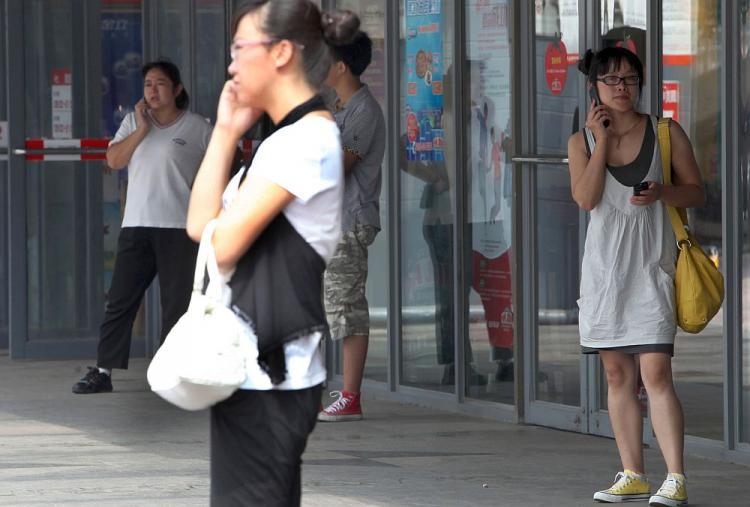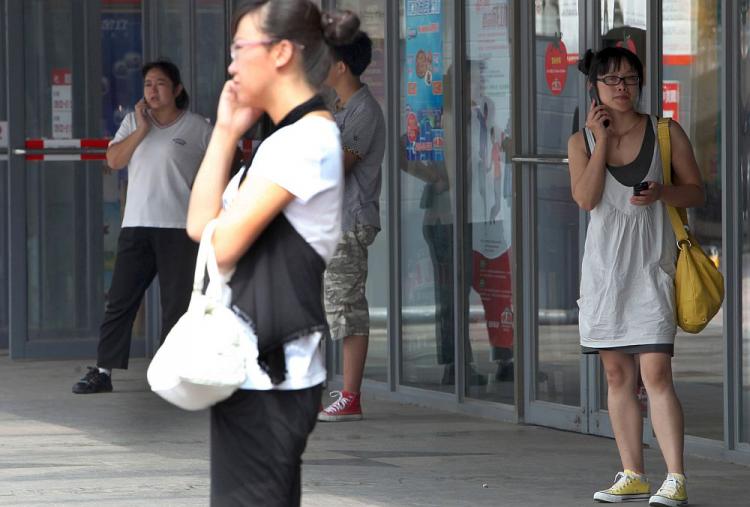Beijing Will Monitor Citizens’ Whereabouts via Mobile Phone
Beijing will establish “an information platform containing locations of Beijing citizens” based on the data obtained by tracking and monitoring China Mobile Limited’s 17 million mobile phones in Beijing.

Chinese shoppers chat on their cellphones outside a mall in Beijing on September 1, 2010. Beijing will establish 'an information platform containing locations of Beijing citizens' based on the data obtained by tracking and monitoring China Mobile Limited's 17 million mobile phones in Beijing. Franko Lee/AFP/Getty Images
|Updated:






